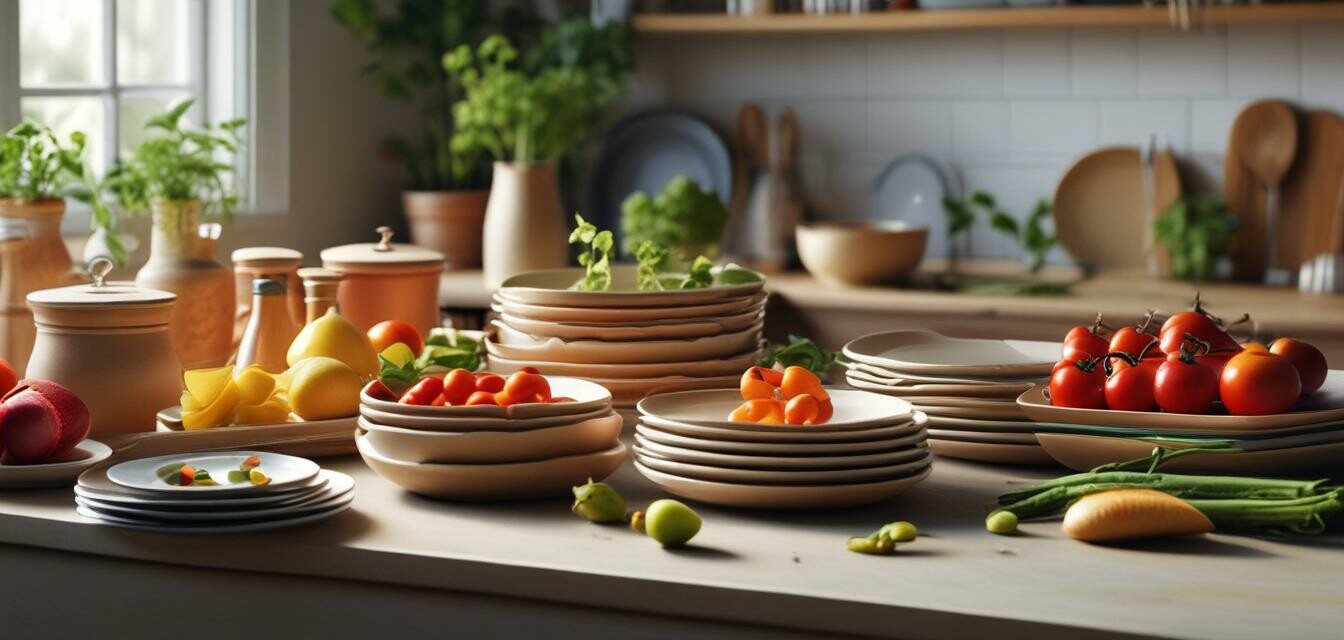
The Transition to Plant-Based Kitchenware
Key Takeaways
- Plant-based kitchenware offers a sustainable alternative to traditional plastic products.
- Innovative brands are leading the way in creating biodegradable and compostable kitchen items.
- Transitioning to plant-based products helps reduce environmental impact and promotes a healthier lifestyle.
- There's a growing variety of plant-based kitchenware for different needs, from utensils to storage solutions.
- Choosing eco-friendly products also supports ethical brands committed to sustainable practices.
The growing trend towards eco-friendly living has sparked significant interest in kitchenware made from plant-based materials. As consumers become more conscious of their environmental impact, many are making the switch from traditional plastic to sustainable alternatives. This article explores the benefits of plant-based kitchenware and highlights some innovative brands and designs leading the charge.
What is plant-based kitchenware?
Plant-based kitchenware refers to products made from materials derived from renewable resources, such as cornstarch, bamboo, and other organic compounds. These products offer a sustainable alternative to conventional plastics, which often take years to decompose and contribute to pollution.
Benefits of plant-based kitchenware
- Sustainability: Made from renewable resources, lowering dependency on fossil fuels.
- Biodegradability: Plant-based products can decompose over time, unlike traditional plastic.
- Safety: Many plant-based options are free from harmful chemicals often found in plastics.
- Versatility: Available in various forms including utensils, plates, and storage solutions.
- Innovation: Continuous advancements in design and materials enhance functionality and aesthetics.
Plant-based vs traditional kitchenware
| Feature | Plant-based Kitchenware | Traditional Kitchenware |
|---|---|---|
| Sustainability | Made from renewable resources | Derived from fossil fuels |
| Biodegradability | Biodegradable or compostable | Non-biodegradable |
| Safety | Free from harmful chemicals | Might contain harmful substances |
| Durability | Usually less durable than plastics | Highly durable if maintained |
Innovative brands leading the way
Several brands have emerged as frontrunners in the plant-based kitchenware market. They are creating unique and beautiful products that emphasize both function and sustainability. These brands focus on using materials that are not only environmentally friendly but also durable enough for everyday use.
- Some brands incorporate recycled plant materials to create products, minimizing waste.
- Designs are often chic and modern, appealing to various aesthetics while remaining eco-conscious.
- Many brands also promote fair trade and ethical manufacturing practices, ensuring that the production process adds to sustainability.
The role of consumers in the transition
Consumers play a crucial role in the transition to plant-based kitchenware. By choosing sustainable products, shoppers can support brands that prioritize eco-friendly practices and contribute to reducing plastic waste. Encouraging friends and family to make similar choices can amplify this impact.
Inspecting labels and understanding the materials used in kitchenware can help consumers make informed decisions.
How to make the switch
- Evaluate your current kitchenware and identify items that can be replaced.
- Research brands that offer plant-based alternatives.
- Start small by replacing frequently used items such as utensils or storage containers.
- Encourage local retailers to stock eco-friendly options.
- Spread the word about the benefits of plant-based kitchenware.
Popular types of plant-based kitchenware
When transitioning to plant-based kitchenware, you can choose from a variety of options:
| Product Type | Materials | Key Features |
|---|---|---|
| Utensils | Bamboo, cornstarch | Heat-resistant, durable |
| Plates | Sugarcane, wheat straw | Compostable, microwave-safe |
| Storage containers | Bio-plastics | Leak-proof, versatile |
| Cups and mugs | Coconut husk, recycled materials | Sturdy, stylish |
Pros
- Sustainable and eco-friendly
- Reduces reliance on plastic
- Supports ethical brands
- Biodegradable options available
- Unique designs and aesthetics
Cons
- May be less durable than plastic
- Sometimes higher prices
- Limited availability in some areas
Conclusion
As consumers become increasingly aware of the environmental impact of their choices, the transition to plant-based kitchenware is a crucial step towards a more sustainable future. By embracing these eco-friendly products, individuals can contribute to reducing plastic waste while supporting innovative brands that align with their values. Explore more options for sustainable kitchenware by visiting our Bamboo Kitchenware, Compostable Kitchen Tools, and Eco-Friendly Storage Solutions pages.
Get involved!
Join the movement towards a greener kitchen by incorporating plant-based kitchenware into your pantry. Share your experiences with friends and family, and inspire others to make the switch!


